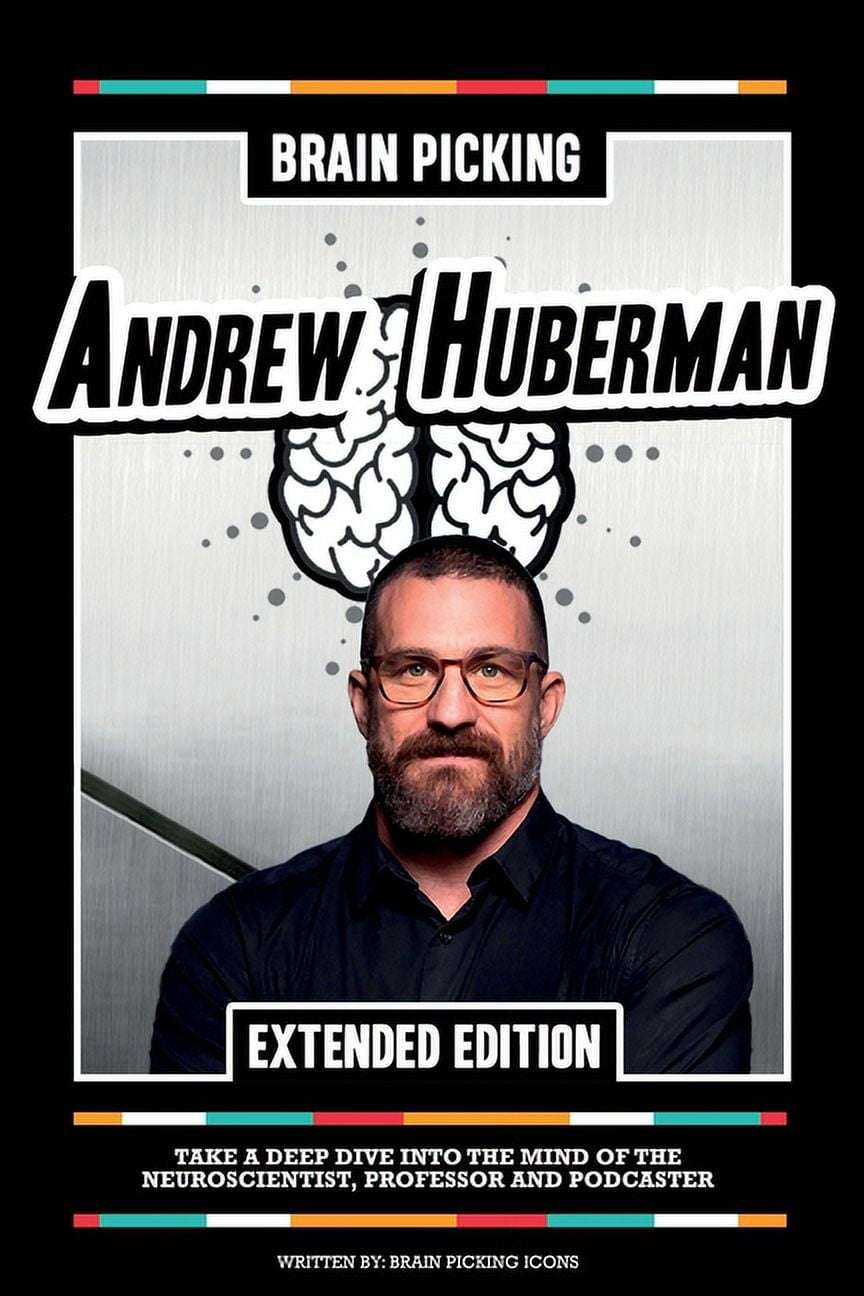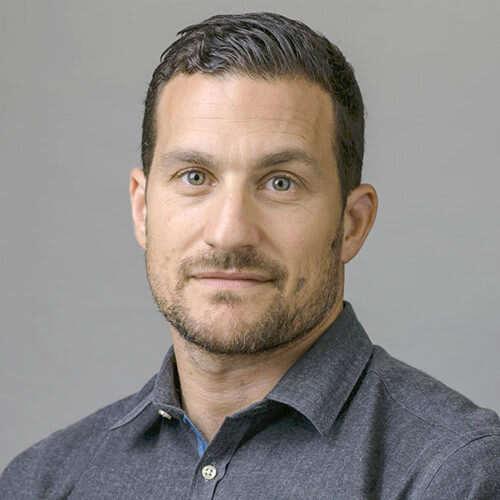Ever wondered about the man behind the science of brain health and human performance? Andrew Huberman, a name that resonates with cutting-edge neuroscience, is making waves in both academia and the world of personal development. Today, we're diving deep into his life, starting with his age and journey. If you're here because you're curious about Andrew Huberman's age, you're in for a treat. We'll uncover not just his years but also the fascinating milestones that have shaped his career.
Andrew Huberman isn't just a neuroscientist; he's a storyteller, a researcher, and a guide for those seeking to unlock the full potential of their minds. His work spans from understanding how the brain processes stress to exploring the science of sleep and vision. But let's face it—his age is often a topic of intrigue. Is he as young as his energy suggests, or has he been dedicating decades to his craft? Stick around to find out.
This article isn't just about numbers; it's about the man behind them. We'll explore how Andrew's age ties into his groundbreaking research and how he continues to inspire millions with his insights. Whether you're a neuroscience enthusiast or someone looking to improve your daily life, this deep dive into Andrew Huberman's world will leave you informed and inspired.
Read also:The Ultimate Guide To Mkvcinemas Your Gateway To Cinematic Bliss
Without further ado, let's get started!
Table of Contents
- Biography of Andrew Huberman
- Andrew Huberman's Age
- Education and Early Career
- Research Contributions
- The Huberman Lab Podcast
- Vision Science Breakthroughs
- Managing Stress and Anxiety
- Sleep Optimization
- Impact on Popular Culture
- Future Projects and Goals
Biography of Andrew Huberman
Let's kick things off with a quick bio of Andrew Huberman. Born in a small town, this neuroscientist has come a long way from his humble beginnings. Known for his work in visual neuroscience and stress management, Andrew Huberman is a professor at Stanford University. His research focuses on how the brain and nervous system control vision, movement, and stress responses.
But who exactly is Andrew Huberman? Well, he's more than just a scientist. He's an advocate for mental health, a fitness enthusiast, and a podcaster with millions of listeners worldwide. Andrew has dedicated his life to understanding the complexities of the human brain and sharing his findings with the public in an accessible way.
Key Facts About Andrew Huberman
Here’s a quick rundown of some key facts about Andrew Huberman:
- He is a professor at Stanford University.
- He hosts the popular "Huberman Lab" podcast.
- His research focuses on vision, stress, and performance.
- He has been featured in numerous media outlets, including TED Talks.
Now that we've got the basics down, let's move on to the big question—his age!
Andrew Huberman's Age
So, how old is Andrew Huberman? As of 2023, Andrew Huberman is approximately 47 years old. Born in 1976, he has spent much of his life dedicated to neuroscience and helping others improve their mental and physical well-being. But age is just a number, right? Andrew's energy and passion for his work make him seem far younger than his years.
Read also:Mustafa Suleymans Wife Name A Comprehensive Look
Interestingly, Andrew often emphasizes the importance of mindset and attitude over chronological age. He believes that staying mentally active and physically fit can help you feel younger, regardless of how many birthdays you've celebrated. This philosophy is evident in his own life, where he balances rigorous research with a love for outdoor activities and fitness.
Why Age Matters
Age might seem like a trivial detail, but in the world of science, it can carry significance. Andrew Huberman's age places him in the prime of his career, with decades of experience under his belt and plenty of time ahead to continue making groundbreaking discoveries. His journey from a young researcher to a globally recognized neuroscientist is nothing short of inspiring.
Let's take a moment to appreciate how far he's come. From a curious kid fascinated by the brain to a leading voice in neuroscience, Andrew Huberman's story is one of perseverance and passion.
Education and Early Career
Andrew Huberman's journey to becoming a renowned neuroscientist began with a solid educational foundation. He earned his Ph.D. in Neuroscience from the University of California, San Diego, where he studied the development and function of the visual system. His early work laid the groundwork for his future research in vision science.
After completing his Ph.D., Andrew continued his postdoctoral training at Stanford University, focusing on the neural circuits that control eye movements. This period was crucial in shaping his understanding of how the brain processes visual information and controls movement. His early career was marked by a series of groundbreaking discoveries that would later become the foundation of his research.
Key Achievements in Early Career
Here are a few highlights from Andrew Huberman's early career:
- Published numerous papers on visual neuroscience.
- Discovered new mechanisms for eye movement control.
- Began exploring the link between vision and stress.
Andrew's early achievements set the stage for his future success, proving that hard work and dedication can lead to incredible opportunities.
Research Contributions
Andrew Huberman's research contributions are nothing short of extraordinary. His work spans multiple areas of neuroscience, including vision, stress, and performance optimization. One of his most notable achievements is the discovery of how specific neural circuits control vision and movement. This research has opened up new possibilities for treating vision impairments and improving athletic performance.
In addition to his work in vision science, Andrew has also made significant strides in understanding how the brain processes stress. His research has provided valuable insights into how we can manage stress and anxiety more effectively, benefiting millions of people worldwide.
Impact of Research on Daily Life
Andrew's research isn't just theoretical; it has real-world applications that can improve our daily lives. Here are a few ways his findings have impacted everyday people:
- Improved techniques for managing stress and anxiety.
- Enhanced understanding of how vision works and how it can be improved.
- Practical strategies for optimizing sleep and performance.
Andrew's commitment to making science accessible has made his research more impactful than ever.
The Huberman Lab Podcast
One of Andrew Huberman's most popular ventures is his podcast, "The Huberman Lab." Launched in 2021, this podcast quickly gained a massive following, with millions of listeners tuning in weekly. The show covers a wide range of topics, from neuroscience and psychology to fitness and productivity. Andrew's conversational style and ability to break down complex concepts make the podcast both informative and entertaining.
But what makes "The Huberman Lab" stand out? It's Andrew's willingness to tackle tough topics and provide actionable advice. Whether you're looking to improve your sleep, manage stress, or boost your performance, the podcast offers practical strategies backed by scientific research.
Why You Should Listen
Here are a few reasons why you should add "The Huberman Lab" to your podcast playlist:
- Expert insights from a leading neuroscientist.
- Practical tips for improving your mental and physical health.
- Engaging discussions on a variety of topics.
With new episodes released regularly, "The Huberman Lab" is a must-listen for anyone interested in neuroscience and personal development.
Vision Science Breakthroughs
Andrew Huberman's work in vision science has been groundbreaking. His research has shed light on how the brain processes visual information and how we can improve our vision naturally. One of his most significant discoveries is the role of specific neural circuits in controlling eye movements and processing visual stimuli.
Andrew's findings have practical applications for people dealing with vision impairments. By understanding how these circuits work, we can develop new treatments and therapies that improve vision without surgery or medication. His research has also provided valuable insights into how we can protect our eyes from the damaging effects of screen time and modern lifestyles.
Practical Tips for Vision Health
Here are a few tips from Andrew Huberman for maintaining healthy vision:
- Take regular breaks from screens to reduce eye strain.
- Practice specific eye exercises to improve focus and clarity.
- Get plenty of sunlight to support overall eye health.
By incorporating these tips into your daily routine, you can protect your vision and improve your overall well-being.
Managing Stress and Anxiety
Stress and anxiety are two of the biggest challenges we face in today's fast-paced world. Andrew Huberman's research offers valuable insights into how we can manage these emotions more effectively. His work focuses on understanding the neural circuits that control stress responses and how we can modify them to improve our mental health.
Andrew's strategies for managing stress and anxiety are both practical and effective. By incorporating simple techniques like breathing exercises and mindfulness practices, you can reduce stress levels and improve your overall well-being. His research has shown that these techniques can have a significant impact on both mental and physical health.
Effective Stress Management Techniques
Here are a few techniques from Andrew Huberman for managing stress and anxiety:
- Practice deep breathing exercises to calm your nervous system.
- Incorporate mindfulness practices into your daily routine.
- Engage in regular physical activity to reduce stress levels.
By adopting these techniques, you can take control of your stress and anxiety and live a more balanced life.
Sleep Optimization
Sleep is essential for both physical and mental health, and Andrew Huberman's research has provided valuable insights into how we can optimize our sleep. His work focuses on understanding the neural circuits that control sleep and how we can modify them to improve our sleep quality. Andrew's findings have practical applications for anyone looking to improve their sleep habits.
Andrew's strategies for sleep optimization are based on scientific research and have been proven to work. By incorporating simple techniques like maintaining a consistent sleep schedule and avoiding screens before bed, you can improve your sleep quality and wake up feeling refreshed and energized.
Tips for Better Sleep
Here are a few tips from Andrew Huberman for improving your sleep:
- Establish a consistent sleep schedule and stick to it.
- Avoid screens and bright lights before bedtime.
- Create a relaxing bedtime routine to signal your body that it's time to sleep.
By following these tips, you can improve your sleep quality and enjoy the many benefits of a good night's rest.
Impact on Popular Culture
Andrew Huberman's influence extends beyond the world of science. His work has had a significant impact on popular culture, with millions of people incorporating his strategies into their daily lives. From fitness enthusiasts to business professionals, Andrew's research has provided valuable insights that can improve both personal and professional performance.
Andrew's ability to make complex scientific concepts accessible has made him a favorite among podcast listeners and social media followers. His engaging style and willingness to tackle tough topics have earned him a loyal following and a reputation as a thought leader in the field of neuroscience.
Why Andrew Huberman Matters
Here are a few reasons why Andrew Huberman matters:
- He makes science accessible and engaging for the general public.
- His research offers practical solutions to everyday challenges.
- He inspires others to take control of their mental and physical health.
Andrew's impact on popular culture is a testament to his dedication to improving the lives of others through science.
Future Projects and Goals
Looking ahead, Andrew Huberman has several exciting projects and goals on the horizon. He continues to conduct groundbreaking research in neuroscience, with a focus on vision, stress, and performance optimization. In addition to his research, Andrew plans to expand his podcast and social media presence, reaching even more people with his valuable insights.
Andrew's future goals include:
- Continuing to explore the neural circuits that control vision and movement.
- Developing new treatments and therapies for vision impairments.


